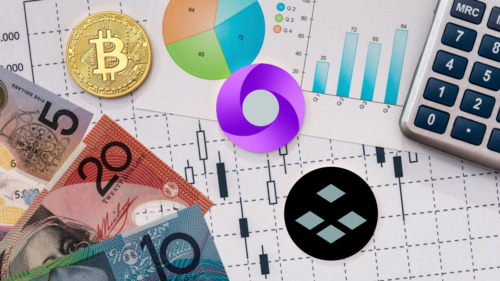Latest Australian Crypto Scams Going Around in 2021

Investment scams involving bitcoin and other crypto assets are on the rise, leading to huge losses for many Australians and warnings from consumer protection agencies to be wary.
Record losses were recorded in June 2021 – mostly due to investment scams – according to Scamwatch, which is run by the Australian Competition and Consumer Commission (ACCC):
As well as using people’s interest in crypto as a lure, scammers are increasingly requesting that victims pay via bitcoin and other cryptos.
The Australian Securities and Investments Commission (ASIC) has seen an increase in reports from people losing money in crypto ‘investment opportunities’ that are usually outright scams. ASIC warns Aussies should be on alert because:
Offenders are difficult to catch and money lost on bitcoin scams can be difficult to recover, especially when offenders operate outside of Australia and all contact has been online.
ASIC
Types of Crypto Scams to Watch Out For
Investment scams:
Scammers prey on people’s desire to make money fast with low risk, and often pressure investors to make decisions quickly without looking into the potential downsides or seeking independent advice. Investors are encouraged to sign up and deposit funds into accounts for crypto trading, either via a wallet or bank account – but the exchanges are fake. Scammers display fake data and no actual trading is taking place. Victims are encouraged to deposit more funds and when they ask to withdraw their money, the scammers either cease all contact or demand payment before funds can be released.
Warning signs include:
- Persistent calls or emails from strangers offering investment advice or hot tips
- Ads for sites or seminars that promise ‘risk-free’ investments or how to ‘get rich quick’.
Romance scams:
Taking advantage of people looking for love is a growing area of scam activity. Scammers use dating apps and social media to connect and then manipulate victims into investing in fake crypto trading opportunities.
Personal identity mining:
Scammers attempt to obtain personal information (via romance and social media scams, phishing, hacking, malware and remote access scams) so they can steal your identity and access your online accounts. For crypto traders, this could enable access to trading wallets.
Illegal crypto mining:
The Australian Cyber Security Centre warns that cybercriminals are also attempting to hack into people’s computers via malware to illegally use their processing power for crypto mining.
Read Our Guide on How to Avoid Bitcoin Scams
Learn more about common types of bitcoin scams and how to avoid being tricked into parting with your crypto.






